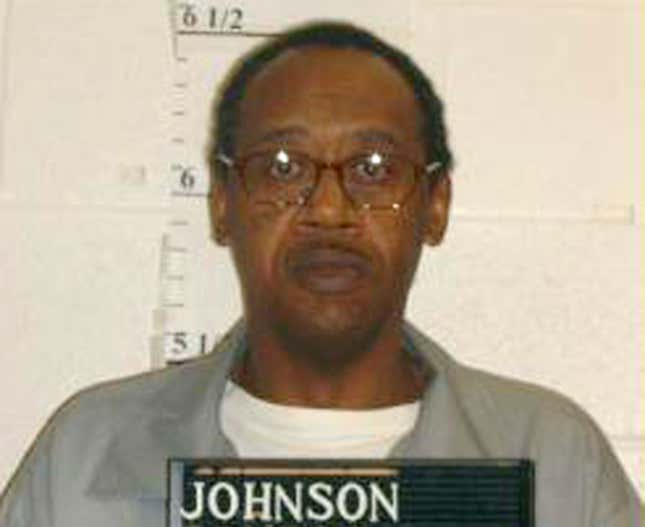
The state of Missouri executed Ernest Lee Johnson on Tuesday after calls for his death sentence to be halted went unanswered. Members of Congress and even Pope Francis lobbied to save Johnson’s life, but he was executed by lethal injection at 6:11 p.m. central time, according to the Missouri Department of Corrections.
His last resort was via the Supreme Court but it denied the request to stop the execution, according to the New York Times.
Johnson was convicted of beating three people to death during a 1994 convenience store robbery. His supporters, including Missouri U.S. Reps. Cori Bush and Emanuel Cleaver II, pleaded to Gov. Mike Parson for mercy because Johnson’s intellectual disabilities, they claim, made the execution unconstitutional.
Johnson did say he was sorry for his actions and expressed remorse.
“I want to say that I love my family and friends,” he wrote in his last statement, adding that he was thankful for his lawyer. “For all the people that has prayed for me I thank them.”
Johnson’s case went through several court challenges over the years and they centered on his intellectual tests and abilities. Eventually, the state’s Supreme Court ruled that his memory of the crime and its details show he was able “to plan, strategize, and problem solve — contrary to a finding of substantial subaverage intelligence.”
Ironically, the Supreme Court ruled in 2002 that executing intellectually disabled people violates the Eighth Amendment’s ban on cruel and unusual punishment.
Here is some background on Johnson, per the Times:
Mr. Johnson was born in Steele, Mo., in 1960 and grew up in Charleston, Mo., Ms. Bush and Mr. Cleaver wrote in their letter. His father was a sharecropper, they said, and he was raised primarily by his grandmother.
Because of his mother’s addictions to alcohol and drugs, Mr. Johnson was born with fetal alcohol spectrum disorder, Ms. Bush and Mr. Cleaver wrote. The Associated Press reported that up to 20 percent of Mr. Johnson’s brain tissue was removed during an operation in 2008 to remove a brain tumor.
“Mr. Johnson’s execution would be a grave act of injustice,” Ms. Bush and Mr. Cleaver wrote.
In an opinion piece in The Kansas City Star on Sunday, Bob Holden, a Democratic former governor of Missouri, said he had sent a letter to Mr. Parson seeking clemency for Mr. Johnson. Mr. Holden said that he supported capital punishment, noting that 20 men were executed during his tenure as governor, from 2001 to 2005.
“I also realize, however, there are unique occasions when the people of our state are wisely served by the governor exercising the office’s clemency powers,” Mr. Holden wrote. “The scheduled Oct. 5 execution of Ernest Johnson, I believe, is one such instance.”
Mr. Johnson, he wrote, had a “paper trail” of mental health professionals documenting his intellectual disabilities. His brain development may have been stymied by fetal alcohol spectrum disorder, Mr. Holden wrote, citing low I.Q. scores, adding that his communication skills were “less than those of a typical 5-year-old.”
“None of this excuses what Johnson did,” Mr. Holden wrote. “But if our state is to be guided by the rule of law, we must temper our understandable anger with reason and compassion for the most vulnerable among us, including Ernest Johnson.”
According to the Equal Justice Initiative, Black people account for just 13 percent of the population, but make up 42 percent of people on death row and 34 percent of those executed; 75 percent of execution cases involve white victims.

